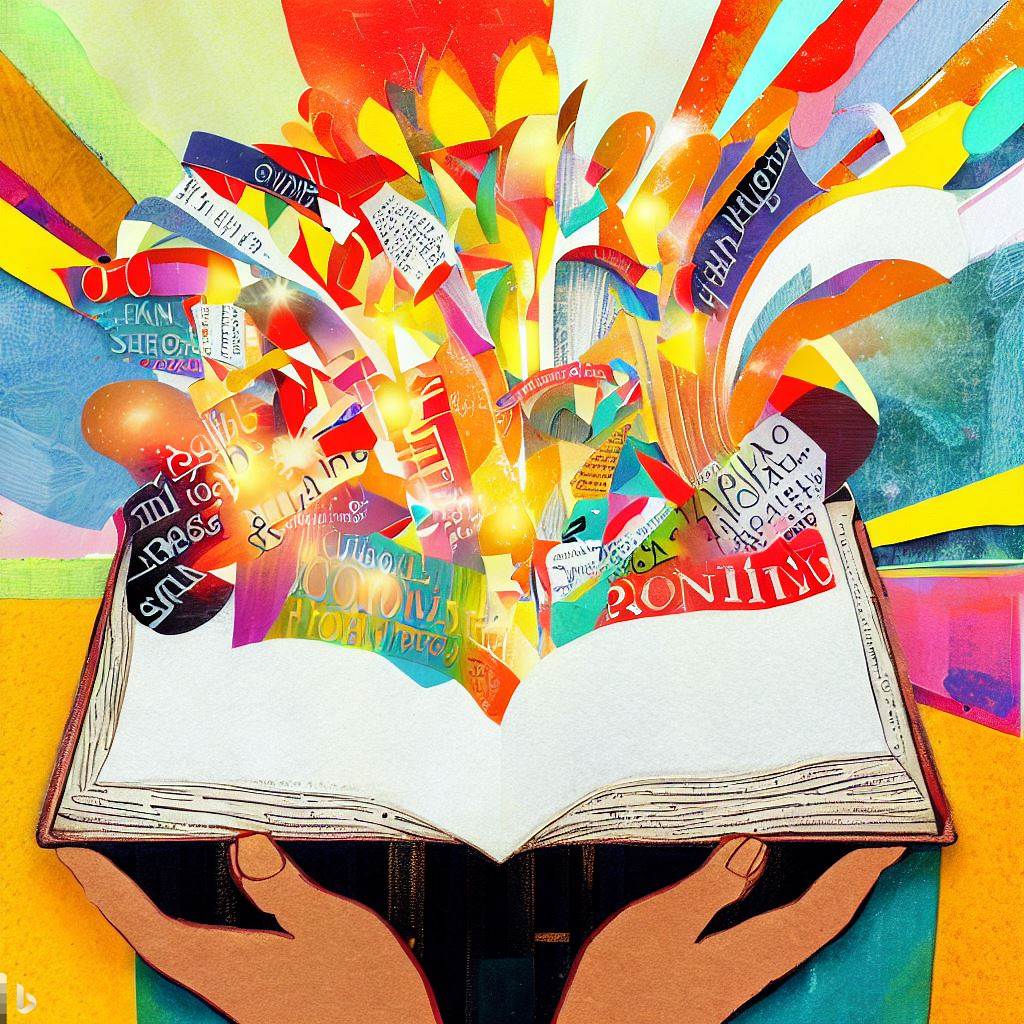Let me tell you, 2019 was a remarkable year for the literary world. There was a tantalizing plethora of novels, biographies, and thought-provoking non-fiction to satiate even the most voracious reader. But which ones are truly the cream of the crop? I’ve done the heavy lifting for you and identified the top 5 must-read books of 2019, which you absolutely cannot miss. So, buckle up, grab a cup of tea (or coffee, no judgment here), and let’s embark on this literary adventure together.
- Unraveling the Mysteries of Life with “Where the Crawdads Sing” by Delia Owens
Delia Owens’ spellbinding debut novel, “Where the Crawdads Sing,” took the literary world by storm in 2019. Set in the marshlands of North Carolina, this novel masterfully blends a coming-of-age story with a murder mystery, all while showcasing the breathtaking beauty of nature. How’s that for a literary adventure?
The novel tells the story of Kya, the so-called “Marsh Girl,” who grows up in isolation after being abandoned by her family. Kya’s journey of self-discovery and survival, interwoven with the town’s suspicions about her involvement in a mysterious death, will keep you turning pages late into the night.
A few fascinating facts about “Where the Crawdads Sing”:
- Delia Owens is a wildlife scientist, and this is her first foray into fiction writing.
- The book spent a whopping 67 weeks on The New York Times Best Seller list.
- Reese Witherspoon’s production company has picked up the film rights for the novel.
Who should read this novel?
- Lovers of mystery and suspense
- Fans of coming-of-age stories
- Nature enthusiasts
- Glimpsing the Afterlife with “The Silent Patient” by Alex Michaelides
Have you ever wondered what goes on in the mind of a person who seemingly can’t (or won’t) communicate with the outside world? “The Silent Patient,” the electrifying debut novel by Alex Michaelides, explores the depths of the human psyche and the secrets that lie beneath a seemingly perfect facade.
The novel introduces us to Alicia Berenson, a famous painter who is found with her husband’s dead body and a smoking gun in her hand. The only problem? She’s not speaking. Enter Theo Faber, a criminal psychotherapist determined to uncover the truth behind Alicia’s silence. What follows is a masterful blend of psychological suspense and Greek tragedy that will keep you guessing until the very end.
A few captivating facts about “The Silent Patient”:
- Alex Michaelides is a screenwriter, and this is his first novel.
- The book topped The New York Times Best Seller list.
- Brad Pitt’s production company has acquired the film rights for the novel.
Who should read this novel?
- Fans of psychological thrillers
- Those who enjoy unraveling complex character motivations
- Greek mythology enthusiasts
- Delving into the Power of Female Friendship with “City of Girls” by Elizabeth Gilbert
If you’ve ever found solace, empowerment, or just pure joy in the company of your closest girlfriends, then “City of Girls” by Elizabeth Gilbert is a must-read for you. This enchanting novel explores the transformative power of female friendship amidst the backdrop of the glamorous New York City theater scene in the 1940s.
The story follows Vivian Morris, a naive nineteen-year-old who is sent to live with her eccentric Aunt Peg in Manhattan. As Vivian becomes immersed in the dazzling world of showgirls, nightlife, and love affairs, she forges lasting friendships with women who defy societal norms and embrace life in all its messy glory. “City of Girls” is a celebration of female resilience, independence, and the bonds that make us stronger.
A few sparkling facts about “City of Girls”:
- Elizabeth Gilbert is the acclaimed author of the international bestseller “Eat, Pray, Love.”
- The novel is a New York Times Best Seller.
- The story offers an insider’s look into the world of theater, fashion, and female empowerment.
Who should read this novel?
- Fans of historical fiction
- Those who appreciate strong, multidimensional female characters
- Readers seeking a heartfelt exploration of the power of friendship
- Exploring the Depths of Family Secrets with “Daisy Jones & The Six” by Taylor Jenkins Reid
Rock ‘n’ roll, tumultuous relationships, and a whirlwind of emotions – “Daisy Jones & The Six” has it all. This captivating novel by Taylor Jenkins Reid takes readers on an emotional roller coaster as it unveils the rise and fall of a fictional 1970s rock band and the secrets that led to their ultimate demise.
Told in an oral history format through a series of interviews, the novel delves into the lives of Daisy Jones, a talented singer with a wild streak, and the members of The Six, a rock band on the verge of stardom. As the story unfolds, we bear witness to the intimate and often turbulent relationships between the band members, ultimately revealing the truth behind their mysterious breakup.
A few rocking facts about “Daisy Jones & The Six”:
- The novel is a New York Times Best Seller.
- Reese Witherspoon’s production company is developing a television series based on the book.
- The author, Taylor Jenkins Reid, conducted extensive research on real-life 1970s rock bands to craft her fictional story.
Who should read this novel?
- Fans of music history and 1970s rock ‘n’ roll culture
- Readers who enjoy unconventional storytelling formats
- Those who appreciate character-driven narratives and emotional depth
- Journeying Through Time with “The Starless Sea” by Erin Morgenstern
Prepare to be swept away on a mesmerizing literary adventure with “The Starless Sea,” Erin Morgenstern’s enchanting sophomore novel. This magical tale weaves together multiple storylines, creating a rich tapestry of myth, legend, and love that spans time and space.
When graduate student Zachary Ezra Rawlins discovers a mysterious book in the university library, he is drawn into a fantastical world of hidden doors, lost cities, and ancient libraries. Along the way, he encounters a diverse cast of characters, each with their own secrets and connections to this magical realm. As Zachary’s journey unfolds, he must unravel the mysteries of the Starless Sea and its timeless stories before it’s too late.
A few enchanting facts about “The Starless Sea”:
- Erin Morgenstern is the author of the best-selling novel “The Night Circus.”
- The novel has been praised for its lush, imaginative storytelling and intricate world-building.
- “The Starless Sea” has become a favorite among book clubs and fantasy aficionados alike.
Who should read this novel?
- Fans of fantasy and magical realism
- Readers who enjoy intricate, multi-layered narratives
- Those who appreciate beautiful, immersive prose and imaginative world-building
Conclusion: The Timeless Power of Storytelling
As we come to the end of our literary adventure, it’s clear that 2019 was a year filled with extraordinary storytelling. The top 5 must-read books I’ve shared with you offer a diverse range of emotions, themes, and genres, but they all have one thing in common: their ability to transport us to another time and place, to connect us with characters who feel real and relatable, and to leave a lasting impact on our hearts and minds.
From the marshlands of North Carolina to the glittering stages of 1940s New York, from the depths of the human psyche to the far reaches of a starless sea, these books will take you on unforgettable journeys that you won’t want to miss. So, what are you waiting for? Dive into these literary treasures and let the power of storytelling remind you of the magic that lies within the pages of a good book.
Remember, a great story has the power to inspire, enlighten, and remind us of the beauty and complexity of the human experience. These top 5 must-read books of 2019 are more than just words on a page; they are gateways to new worlds, to self-discovery, and to a deeper understanding of ourselves and others. Happy reading, and may your own literary adventure be just as thrilling and transformative.


